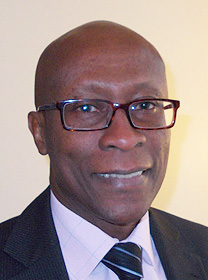The WTO brings gifts

By Edwin Laurent
Tweet
Tweet
In the run-up to the Christmas season, many of us might have missed the fuss and excitement in World Trade Organisation (WTO) circles.
The decade-long Doha Development Agenda (DDA) talks, which had been floundering for quite some time, finally agreed on something.
It came as some surprise, since the prospects had not looked good when trade ministers trekked to Bali last month for their 9th WTO conference.
Roberto Azevêdo, the Brazilian who was recently appointed the WTO’s chief, proudly proclaimed: “For the first time in our history, the WTO has truly delivered.”
David Cameron, the UK Prime Minister, hailed what happened as "historic" and a "lifeline" for the world's poorest people, which would benefit British businesses by more than US$1bn.
During the talks, developing countries were impatient and seeking a better deal on trade.
Antigua, Dominica, St Lucia, St Vincent, Venezuela and others boldly challenged ministers “to start to address the asymmetries in world trade and ensure a fairer participation of the developing countries in international trade”.
Earlier, in Addis Ababa at the end of October, the African Union had called for “a fair and balanced outcome of the DDA including in the context of the Bali package, which must prioritise development as its main deliverable”.
All this gave ministers the incentive to continue for an extra day in Bali and reach agreement.
Now that the conference documents are on the internet, we can read them and judge for ourselves what it all actually means for the Caribbean – and whether the excitement was justified or just “a brave face”.
What was the deal?
The accord in Bali was for a formal international agreement to be adopted next July to make it easier for goods to pass through ports and Customs – called Trade Facilitation.
If implemented, the accord should get Customs to use modern technology, provide clarity and transparency, get rid of arbitrariness, reduce bureaucracy and clamp down on dodgy dealings and corruption.
These reforms will speed up Customs clearance, as well as reducing aggravation for traders and the costs of importing and exporting: unnecessary costs that are passed onto the consumer.
The WTO estimates that the agreement will lower the costs of trading by 10% to 15%, earning the global economy between US$400bn and US$1tn.
Who benefits?
How will this bonanza be shared out? That depends on how exactly countries gain from Trade Facilitation.
They do so in two ways.
Firstly, the economy benefits from cutting the waste of inefficiency and saves money from the resulting drop in prices of consumer goods and other imports.
Why, you might ask, should countries need an international agreement to take measures that are in their own interests anyway?
Maybe it’s the cost.
But the gains from eliminating unnecessary burdens placed on importers would far exceed those costs.
The other gain is to exporters, who benefit from the removal of bottlenecks and inefficiencies in Customs that slow down clearance and raise their costs.
Major exporting nations such as the US, China, Brazil, Japan and Germany know that Trade Facilitation would help their exporters sell more easily in foreign markets and enjoy greater profits.
While the WTO accord will require all countries to take steps to facilitate trade, the less advanced developing nations, whose Customs departments are starting from a low base, will have to upgrade the most in order to meet the agreed standards.
The impact of the changes on their imports could therefore be significant.
The more advanced countries, though, with their relatively efficient and modern Customs, will not have to transform as much, so their imports should be less affected.
The countries that can capitalise most on the new trade opportunities in less advanced countries are those that are internationally competitive and have the capacity to expand.
It seems, then, that most Caribbean countries will gain principally from lower prices on imports, because Customs departments become more efficient. Very good and valuable, of course; but that will not result in much of the $1tn making it to the Caribbean.
Edwin Laurent has served as an Eastern Caribbean Ambassador to Europe and worked in London for the Commonwealth. He has recently been awarded the Cross of the Order of St Lucia for contributions to economic development. [To read other columns by Edwin Laurent, visit our column archives area.]
